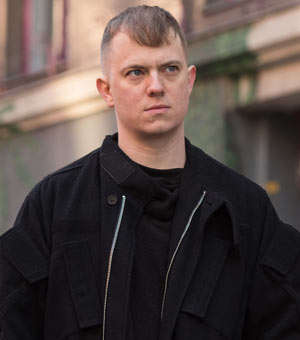2008: Moments: Harold Pinter (1930-2008)
by Travis Jeppesen on December 28, 2008
I haven’t been to the theatre very often in the last ten years. I’ve purposefully avoided it. What a lot of people don’t know is that I actually started off as a writer for the theatre, when I was a teenager. One of my favorite playwrights (and hence formative writers) was Harold Pinter. I read a lot of his plays when I was younger, but never had a chance to see any of them staged. So when I found out about a West End revival of No Man’s Land that happened to coincide with my visit to London in November for the Disorientations launch, I somewhat randomly decided to buy tickets.
I didn’t have high expectations. Actors tend to butcher texts – theatrical actors, especially – this is one of the reasons why I lost interest in playwriting so many years before and retreated into my own personal world of novels and poetry, where I seemingly wouldn’t have to rely on anyone else’s interpretation of my words.
But the production in London was great and I think the actors brilliantly captured the nuances of Pinter’s text. This is difficult because, despite claims to the contrary, acting is an intellectual task – not merely a physical act. Intelligent actors, actors with a true understanding of the irresolvable complexities of being, are rare to come by. Acting Pinter is all the more difficult, because his work directly addresses this project – being and unknowability – in plays that are more metaphysical exercises than generic drama.
No Man’s Land was written in the ‘70s, a great decade for Pinter. Many of his best plays, including Betrayal and Old Times, were also penned during this period. No Man’s Land consists of two acts. It’s a brilliant study for anyone interested in process-oriented writing and/or form. In the first act, you really feel like Pinter was just writing – putting characters in a situation and making no effort to explain their relationship or why they are there, but allowing them to riff on whatever subjects happen to cross their (his) mind. The second act slowly creeps towards some justification of the circumstances they find themselves in, but a lot of questions are left unanswered by the time the play reaches its conclusion. The rigid formal dichotomy between the first and second acts impressed me, and also left me to wonder about Pinter’s editing process. I think you have to be rather strong-willed to choose to maintain the irresolvability that often characterizes the beginning of a work – especially in a world that favors linear narratives with clean finishes and plenty of hooks along the way. This, if anything, is a sign of Pinter’s discipline and genius.
If you had told me a year ago that I would end 2008 writing a play, my first one in years, I probably would’ve laughed. It just never would have occurred to me. I think Pinter is at least partly responsible for reminding me that theatre is a worthwhile art form, and one that is loaded with possibilities that you don’t necessarily find in visual art and literature strictly bound by the page. So I’ll remember 2008 not only as the year of Pinter’s passing, but as the year that I was brought back to the theatre.


Leave your comment